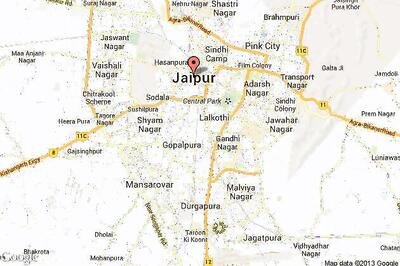
views
New Delhi: Even as the Rajya Sabha on Wednesday paved way for the 124th Constitutional Amendment Bill in becoming an act granting 10% reservation to economically weaker section in the general category, law minister Ravi Shankar Prasad and former minister Kapil Sibal had a war of words over the constitutionality of the bill.
One of the basic fear surrounding the law is that whether it violates the 'basic structure of the Constitution' as enshrined in the Kesavananda Bharati case and how the violation of the 50% ceiling for reservation would attack at the very root of that 'basic structure'.
Law minister Ravi Shankar Prasad, while justifying that the bill in no way meddled with the basic structure, said that "basic structure has nothing to do with reservation”.
"The 50% cap is not there in the Constitution but through a SC verdict in Indra Sawhney," said Prasad.
However, reading the majority opinion of the Indira Sawhney verdict, Prasad stated that the court in 1992 noted that "we are also of the opinion that this rule of reservation is only applicable for the one under Article 16 (4) which includes only the SCs, the STs and the OBCs."
"In this bill we are adding a clause to Article 15 where reservation will be given in educational institutions and employment and under Article 16 to public employment. Our reservation will not touch the existing reservation for the SC, ST and the OBCs. Can we not worry about the class which has not got the benefit of reservation?" argued the law minister.
But former law minister and Congress leader Kapil Sibal strongly objected and said that there will be "three hurdles that this bill will have to pass: first, is the complete non- application of the mind on the part of the government in introducing this bill; second, is the constitutionality of this bill; third, is the implementation of this bill."
Sibal also argued that the bill will fail the test of Constitutionality because "the Mandal Commission provision of 10% reservation for the economically weaker category was declared unconstitutional by the Supreme Court."
Sibal, citing the Indra Sawhney verdict, stated that "if a nine-judge bench held it unconstitutional, how can you amend the constitution?"
However, Prasad maintained that Article 368 of the Constitution allows "any Constitutional Amendment" and the only limit was to not violate the basic structure.
"Only limitation set by SC is not to disrupt the basic structure of the Constitution. Basic structure of the constitution has nothing to do with reservation," said the law minister.
As the opposition questioned the delayed introduction of the bill, Sibal said that if the bill was introduced in the last five years then there could have been debates on the bill and the "hurried passage" of the bill could have been avoided.
To this charge, Prasad said that the Congress had the option of bringing in such a reservation in 2010 to 2013 but it did not.
"Sinho Commission had noted that reservation be granted to the EWS. It was submitted to the UPA government in July 22, 2010. Why you did not act on this report then? The chairman Sinoh has stated that they went all around the country, they met under represented castes, the also referred to the National sample survey data and then the decision to give EWS reservation was taken," said Prasad.
One of the questions that the opposition also raised was the absence of empirical data and statistics for supporting a cap of 10% reservation for the EWS in open category.
Sibal stated that there "was no empirical data for the EWS quota" and that there was no data to show how many OBCs, SCs, and STs were there in states.
"What is the data to show how many people have homes under 1000 sq ft or have annual income below Rs 8 lakh per annum?" questioned the former law minister.
Since the new reservation gives a 10% reservation to EWS in the open category, Sibal claimed that "only 45,000 jobs have been added in the last five years. That means only 4,500 jobs will be given to the 10% beneficiaries, he said. “Are you amending the Constitution for 4,500 jobs?” said Sibal.
But rather than relying on a caste census or data, law minister Prasad read out the preamble and assured that the government was attempting to provide economic, social and political justice to people and also "equality of opportunity."
Prasad also stated the Directive Principles of State Policy to justify the reservation for the economically weaker sections among the general category.


















Comments
0 comment